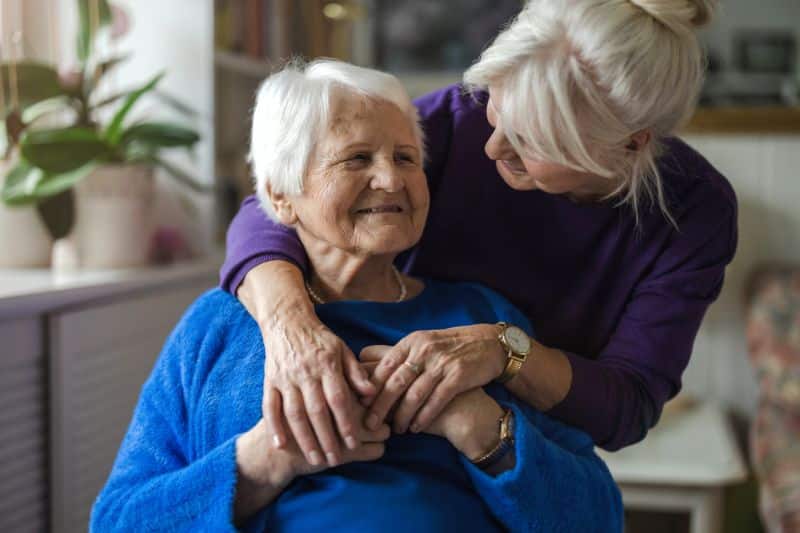How to respond to dementia hallucinations

Your senior parent’s memory loss can affect your entire family, especially if they are experiencing dementia hallucinations. Dementia is the loss of cognitive functioning, meaning the person’s memory, language, problem-solving, and other cognitive skills are impaired. Many older adults with dementia will find their daily lives impacted in some way.
Changes in the brain cause dementia hallucinations and make the person see, hear, feel, or taste things that aren’t actually there. While whatever the person is experiencing isn’t there, it’s important to understand that it feels very real to the person – and responding to a dementia hallucination requires you to accept that notion. In this blog post, one of our senior living teams in NJ will address more helpful tactics to respond to dementia hallucinations.
Determine if a response is needed.
When your loved one is having a dementia hallucination, the most important thing you can do is make them feel safe and reassure them that they will be okay. Every hallucination is different – some people see less scary things like friends who aren’t actually there, while others see more disturbing things like giant bugs crawling up the wall.
You may not feel the need to respond if your senior loved one seems to be having a pleasant hallucination. However, suppose your loved one ise visibly distressed due to what they think is happening. In that case, it is appropriate and helpful to respond by comforting them and attempting to engage them in an activity that will redirect their attention.
Stay calm and don’t argue or try to convince using logic.
If someone is doing something you feel is illogical, your natural instinct might be to point out that what they’re experiencing isn’t real – even if that means engaging in an argument. Unfortunately, for people experiencing dementia hallucinations, no amount of arguing from other people can convince them otherwise.
Rather than argue or get frustrated, stay calm and ask your family member to explain what they’re experiencing. Talking things through can help ease their distress, and your gentle presence may reassure them and help calm them down. If they are having trouble finding the words to describe their hallucination, try subtly changing the subject or sitting with them quietly for a while.
Validate their feelings and provide reassurance.
Dismissing your senior parent might make them even more upset. When someone is experiencing a dementia hallucination, the last thing they want to hear is, “That’s ridiculous, there’s nothing there.” We recommend empathizing with the emotions that they’re feeling in the moment. If they seem scared, for example, you can say, “I know this must be scary for you, but I’m here and everything is going to be okay.”
While you can’t see what they’re seeing, you can understand their emotions and feelings, and that is what you should respond to. If they’re happy, let them know you’re glad for them and you enjoy seeing them happy. If they’re upset and agitated, validate them by staying by their side.
If your senior loved one is having dementia hallucinations and you need support, our Tapestries memory care team at UMC is here to help. For more information about our professional memory care programs in NJ, please visit our website at: https://umcommunities.org




